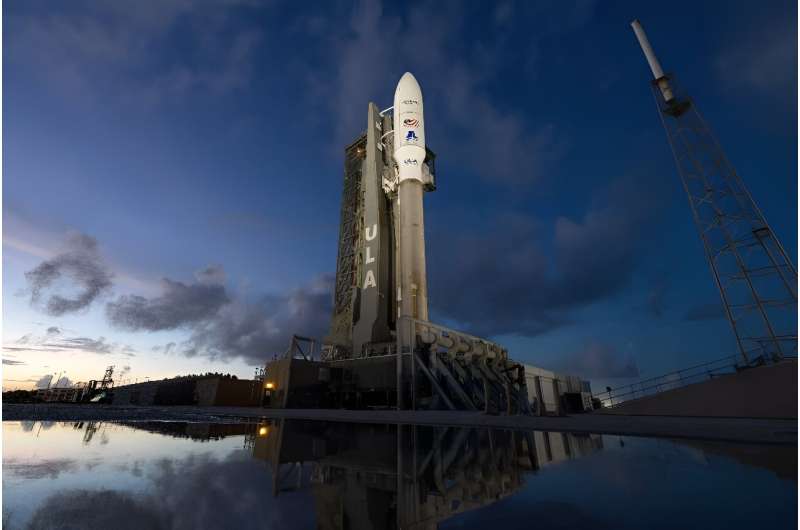

Amazon is set to launch two satellites on Friday, in its first test mission as part of its plan to deliver the internet from space and compete with Elon Musk’s Starlink service.
The launch window for the Atlas V rocket from the United Launch Alliance (ULA) hub at Kennedy Space Center in Florida is scheduled to open for two hours at 2:00 pm local time (1800 GMT).
Once up and running, the company founded by Jeff Bezos says its Project Kuiper will provide “fast, affordable broadband to unserved and underserved communities around the world,” with a constellation of more than 3,200 satellites in low Earth orbit (LEO).
“This is Amazon’s first time putting satellites into space, and we’re going to learn an incredible amount regardless of how the mission unfolds,” said Rajeev Badyal, Project Kuiper’s vice president of technology.
The first operational satellites of the Kuiper project are due to be launched in early 2024, according to Amazon, which hopes for initial tests with customers at the end of next year.
The test on Friday will attempt to make contact with probes from Earth, deploy their solar panels, and confirm that all instruments are operating correctly and at the desired temperatures.
The two prototypes will be removed from orbit and disintegrated in the Earth’s atmosphere at the end of the test mission.
Musk’s SpaceX launched the first batch of its more than 3,700 operational Starlink satellites in 2019 and is by far the biggest player. London-headquartered OneWeb is another early entrant in the emerging sector.
These services are designed to provide internet access to even the most remote and underserved areas around the world, including war zones or disaster-struck areas.
Musk’s ownership of Starlink caused uproar in Ukraine last month when it was revealed that he refused to turn on the service for a planned attack by Kyiv forces on Russia’s Black Sea navy fleet last year.
Given the technology’s strategic importance, governments are also keen to join the rush into the sector.
China plans to launch 13,000 satellites as part of its GuoWang constellation, while Canada’s Telesat will add 300 and German start-up Rivada is eyeing 600.
That will be in addition to the European Union’s Iris project—170 satellites—and the 300-500 satellites planned to be launched by the US military’s Space Development Agency.
© 2023 AFP
Citation:
Amazon’s challenge to Musk’s Starlink to have first launch (2023, October 6)
retrieved 6 October 2023
from https://phys.org/news/2023-10-amazon-musk-starlink.html
This document is subject to copyright. Apart from any fair dealing for the purpose of private study or research, no
part may be reproduced without the written permission. The content is provided for information purposes only.
